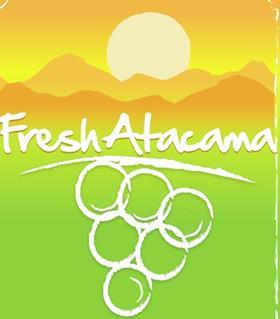
A new initiative in Chile has resulted in the launch of the country's first certified seal for early table grapes, Fresh Atacama, which is designed to highlight the quality characteristics of the fruit that are unique to the northern Atacama region.
Introduced through a public-private partnership, it marks the first time that growers, exporters and government institutions have come together to work on a quality certification of this kind for the area.
Fresh Atacama is part of a government-backed Territorial Innovation Program that is aimed at helping boost the competitiveness of the industry, with the seal looking at consistent fruit quality, health and finish, while considering the characteristics of the region and social/environmentally responsible production.
'The dry desert climate of the Copiapó and Huasco Valleys gives our grapes a crispy intense flavour and consistency,' said programme coordinator Nelson Núñez. 'this quality will now be guaranteed by the Fresh Atacama Seal of Excellence. Our region's farmers persevere in their commitment to providing excellent table grapes.'
The seal will kick off with a pilot programme of some 500,000 cases of grapes bound for the US market this year, with further expansion expected in coming seasons.
'We look forward to what this seal means for our industry,' said Manuel José Alcaíno, president of market consultancy Decofrut. 'Grape-growing in the desert requires a high level of seriousness and commitment. This early fruit industry has developed through great efforts. The process requires a breed of entrepreneur encompassing a high level of sacrifice and vision for the future.'
The Atacama region is expected to export a total of 107,441 metric tonnes of table grapes this year, with harvests starting in the second week of November with the Perlette and Flame Seedless varieties.
The region also produces the Sugraone, Thompson Seedless, Black Seedless, Red Globe, Autumn Royal and Crimson Seedless varieties, with grapes are renowned for being well finished and turgid, while the climatic conditions help protect crops from fungal diseases.



